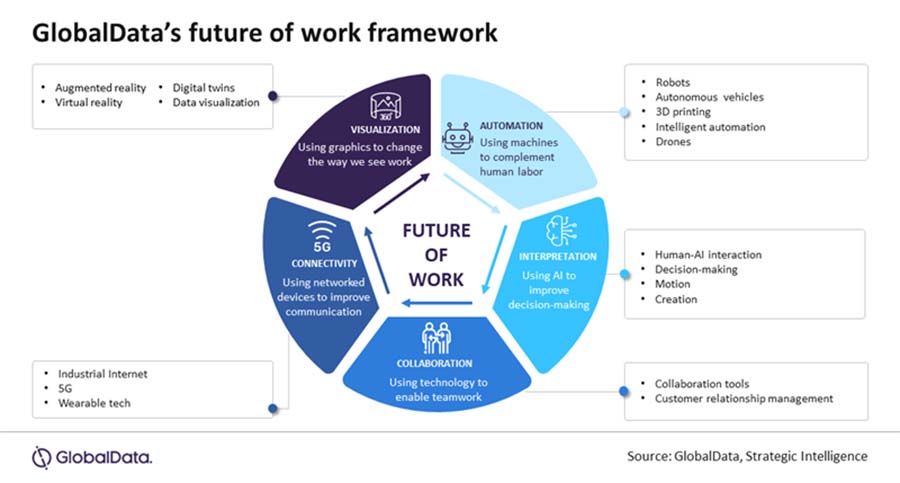The return to the office has accelerated in 2024. While further return-to-the-office mandates are expected in 2025, many employees continue to work remotely for at least part of the time.
Against this backdrop, artificial intelligence (AI) has emerged as the hottest enterprise tech trend, thanks to the growing ubiquity of generative AI (GenAI), says data and analytics company GlobalData.
GlobalData’s latest Strategic Intelligence report, “The Future of Work,” reveals that talent shortage will likely drive technology investment and adoption, particularly in AI. Automation will reshape offices and factories and change the nature of work. This will require training the existing and new staff to ensure they have the necessary skills.
Laura Petrone, principal analyst: Strategic Intelligence team at GlobalData, comments: “Many companies now demand that employees work from the office five days a week. However, many employees still continue to work remotely. Consequently, collaboration tools like video-conferencing and instant messaging have become the cornerstones of the new hybrid work model.
“They will also be critical in preventing the emergence of a two-tier workforce, where remote workers are at a disadvantage compared to their office-based colleagues.”
GlobalData’s future of work framework highlights the technologies that are disrupting the way we work. The future of work will reshape both factories and offices, encouraging greater collaboration between humans and technology and empowering workers with new digital skills.
In the background, technology is bringing about profound political, economic, and social change, especially visible in changing demographics and the issues it raises, the debate around greater automation and disruptive themes like AI.
Each category in the framework focuses on a specific role that technology can play. However, in reality, the future of work will involve the intersection of multiple technologies to the extent that the boundaries between these categories will become blurred.

Petrone concludes: “AI has emerged as a key trend in the future work. While AI has been around for a while, it is only recently, with the rise of GenAI, that governments worldwide have become more concerned about the impact of AI applications on societies.
“As GenAI becomes increasingly embedded in workplaces, corporations must ensure that their AI systems align with the ethical and regulatory standards.”
